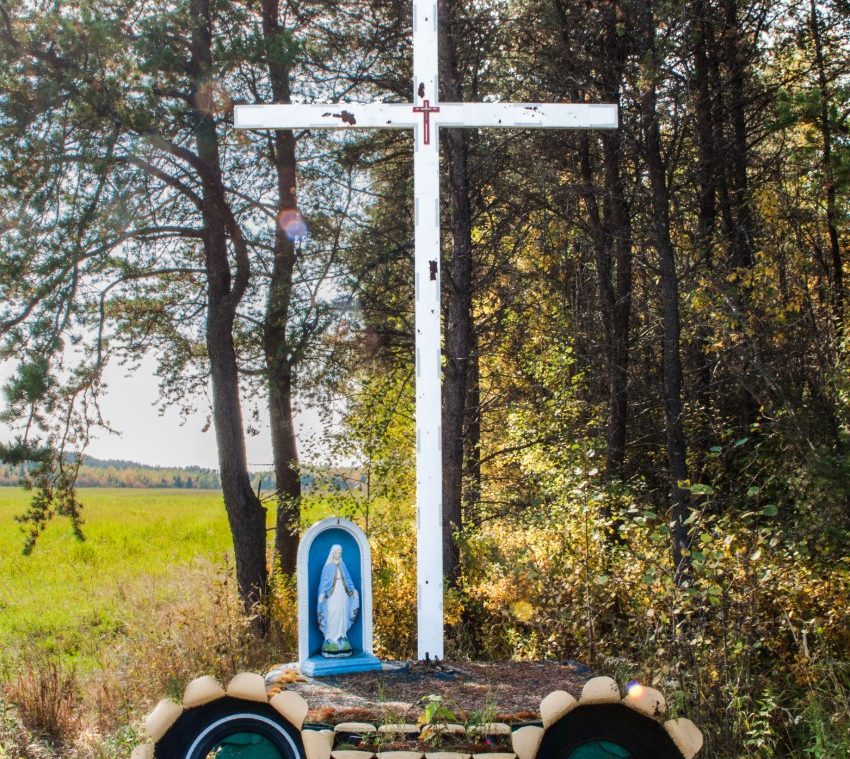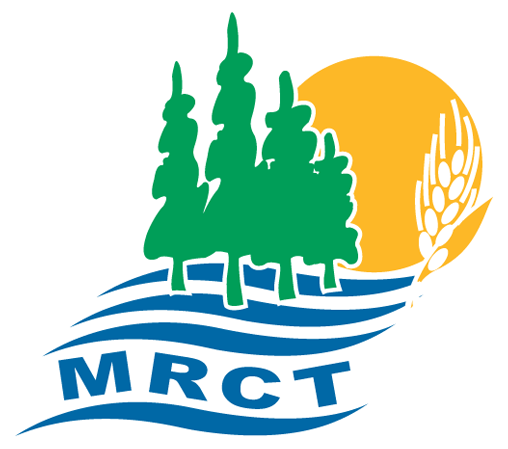
Latulipe Wayside Cross
croix décorée par des pneus en forme de fleurs
Year : 2016
Photo credit : Christine Brézina
Latulipe-et-Gaboury Wayside cross
In almost every municipality in Témiscamingue, one can still find at least one wayside cross. There are about thirty of them in our region. In addition to those crosses placed by the roadside, others are installed on a mountain or in public places like at Fort-Témiscamingue or in the courtyards of private properties. A niche on the shaft of the cross is quite common. Some crosses are placed on a pedestal and surrounded by a white wooden fence.
Behind each wayside cross, there lies an intention:
- The Commemorative Cross: It reminds people of a specific event site.
- The Foundation Cross: It signifies the act of taking possession of new land by man.
- The Public Devotion Cross: It’s the traditional wayside cross, acting as a gathering place.
- The Votive Cross: It represents a specific vow or favor. People plant this cross to request a favor or, more often, erect it to express gratitude for a favor granted.
Wayside crosses can be classified into three models:
- The Simple Wayside Cross: A post and traverse with occasional decorative elements at the ends.
- The Cross with Instruments of the Passion: This type usually includes symbolic objects on the traverse, such as the lance, sponge, hammer, nails, crown of thorns, etc.
- The Calvary: It depicts Christ on the cross, sometimes surmounted by a small building. The Virgin Mary and Apostle John are occasionally shown at the foot of the cross. This type is mainly found in cemeteries.
Did you know that there are eight quite distinct wayside crosses documented in the Témiscamingue territory? Discover them all.





